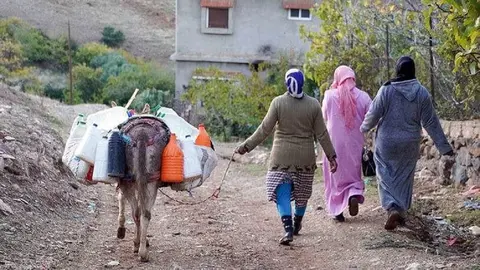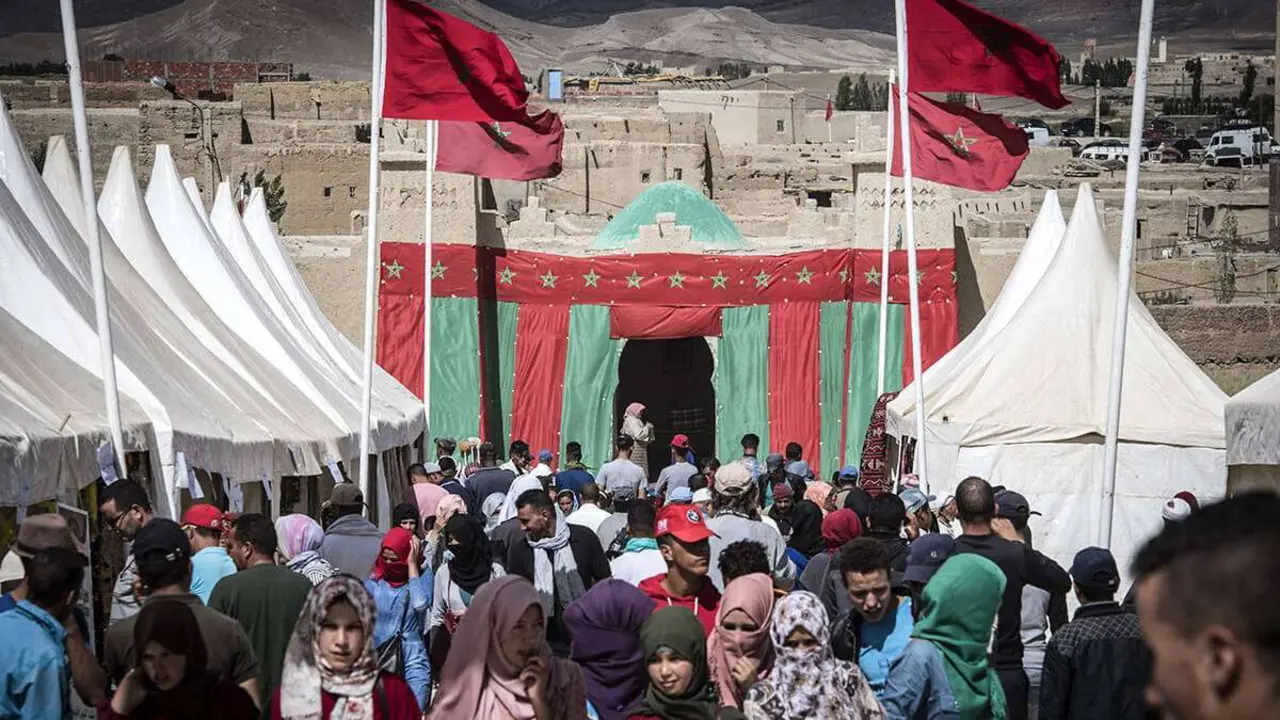"African Women's Voices": BCG's pioneering study on the role of women in African societies

A new report by Boston Consulting Group highlights the different perceptions of the role of women in African societies, and the important impact of these narratives on women's economic participation, an important driver of growth for the continent.
As a reminder, the World Bank has estimated that women's equal participation in employment could generate 20% growth in African GDP, and up to 40% in Morocco.
In addition to structural projects related to women's access to education, health, capital, etc., Africa's economic growth necessarily requires a change in this narrative, with a central role for policymakers, educators and the media.
A decade ago, women's economic participation was increasing in many countries, and Africa was making significant progress in reducing gender inequality. However, a wave of macroeconomic challenges, followed by the COVID-19 pandemic, have led to a sharper decline in women's economic participation in Africa since 2016 than anywhere else in the world. According to a new report by The Boston Consulting Group (BCG), progress towards greater economic participation of women will only be possible if the discourse about their place in African societies changes.
The study, entitled "African Women's Voices: Reframing the Narrative on Women's Roles in African Societies", is based on a survey of 6,000 women and men in South Africa, Egypt, Ethiopia, Kenya, Morocco and Nigeria (which account for 60% of the continent's GDP). It aims to better understand their perceptions of the main obstacles to women's economic empowerment and their role in their societies.

Decline in African women's economic participation since 2016
Between 2010 and 2016, Africa reduced gender inequalities faster than any other region in the world. In 2016, this pace slowed due to the commodity crisis, followed by a global recession and the onset of the pandemic.
As the world returns to normalcy in the aftermath of COVID-19, the African continent must redouble its efforts to reduce gender disparities. "If African women's economic participation returns to the pace seen between 2010 and 2016, the continent could overcome gender disparities 60 years earlier than the current pace suggests," says Zineb Sqalli, Managing Director & Partner at BCG in Casablanca.
On a continental scale, Africa's gender parity rate is now similar to the global average. According to the Gender Gap Report 2022 published by the World Economic Forum (WEF), the African score is 0.69 and the global average is 0.71 (1.0 represents gender parity). However, there is a wide disparity in parity across the continent. Of the 146 countries included in the WEF report, Rwanda ranks 6th, Namibia 8th and South Africa 20th, while half of the bottom 50 countries in the global rankings are African, including Nigeria 123rd, Morocco 136th and Congo 144th.
BCG's analysis of the level of education and economic participation of African women revealed that countries can be classified into three archetypes, each with a specific profile.
- North Africa: In the last 20 years, countries such as Morocco and Egypt have significantly improved girls' access to primary and secondary education. However, women remain largely outside the labour market and the main obstacle seems to lie in deeply held beliefs about the role of women in society, held by both men and women. About half of the respondents in Morocco and Egypt, both men and women, stated that women should not work if the husband or father earns enough money to support the household. In contrast, only 12% of women and 15% of men in sub-Saharan Africa felt the same way. Almost 90% of men surveyed in this segment said that women should go to school to be educated and respected, not to be financially independent; and 39% of women think that higher education is more important for men than for women.
"The model of success for a Moroccan woman is to be a woman whose (male) sons are successful," says a participant in the Casablanca study.

These countries have a pool of educated women, but their economies do not benefit sufficiently from this narrative, which is responsible for their low participation in the labour market. As a reminder, Morocco has the eighth lowest rate (139 out of 146 countries) of female economic participation in the world, estimated at 20%. To overcome this, it is necessary to value women as economic agents, capable of generating value for their companies, communities and countries, beyond their role as educators and mothers.
- Southern and Eastern Africa (excluding Ethiopia): In terms of women's economic empowerment, this region has made significant progress, not only through continued efforts to promote girls' education, but also through various programmes and initiatives to support women entrepreneurs and businesswomen. However, women of this archetype still face significant obstacles. Nearly 75% of them report having experienced gender-based violence, and more than 30% domestic violence (compared to 25% and 4%, respectively, in North Africa). More than 60% of adolescent girls reported having been victims of bullying at school, which is one of the main reasons for school dropout. In these countries, the "narrative" around the role of women has in fact already changed in the last fifteen years. Women have invested massively in different sectors of activity and their contribution to the economy is recognised, as demonstrated by "Mbokodo", the expression used in South Africa to describe strong women.
"I have the feeling that the autonomy we South African women have gained through our work means that we are perceived as a threat, which may explain the extent of violence, especially domestic violence," says one of the people interviewed in Johannesburg for the study. A new narrative shift must therefore take place if we are to achieve a more harmonious coexistence and greater value generated by women's economic participation in the economy: women as partners with men in creating wealth for their countries and their communities, for the good of all.
- Central and West Africa: In countries such as Nigeria and Ethiopia, women have extremely low levels of education, the lowest in Africa and the world. In fact, 40% of girls drop out of school after primary school, almost 50% before the age of 18 (compared to 30% and 20% in North and South East Africa respectively) and only 5% reach university. As a result, although more than 80% of these women are employed, their lack of education means that they are confined to very low-paid jobs, which means they have little chance of economic emancipation compared to women in other parts of Africa.
42% of women surveyed spoke of their lack of independence (compared to 27% in Southern and East Africa and 14% in North Africa). Interviews and focus groups revealed that parents sometimes feel that educating boys is more important than educating girls, as they are seen as the main breadwinners in their households; on the other hand, they think that marrying off their daughters at an early age could improve their economic situation. Ironically, not sending their daughters to school is more likely to limit their income.
Here again, the discourse needs to change. Instead of being seen as a second-tier economic actor in the household, providing only supplementary income, women should be seen as independent and economically autonomous individuals.

Combating violence against women
Although the challenges women face differ across Africa, violence and insecurity are pervasive and affect women of all ages, income levels and educational backgrounds in every country on the continent.
Domestic violence is widespread in sub-Saharan Africa. South Africa is by far the most affected country, with 84% of women saying it is the biggest problem they face in their country, followed by Ethiopia (70%), Kenya (64%) and Nigeria (61%).
In North Africa, violence takes another form, that of insecurity in public places, cited as the second biggest difficulty (after access to employment): 36% of women in Morocco and 33% of women in Egypt say that security in public places is the main challenge they face.

Legislation, education and media to renew the narrative
At the moment, most national investment and international aid for women's empowerment in Africa is focused on infrastructure needs in the areas of health, education and employment. While these levers are undeniably important, proactive actions aimed at changing social norms and the role of women in society are also vital, and often underinvested in.
Legislation is a powerful means of addressing the issue of social norms. In addition to enforcing different behaviours, it raises debate within communities and raises awareness at the same time. For example, laws establishing representation quotas are seen as a first step in the right direction. In particular, the Spanish parity law has contributed to the country becoming a world leader in 2022 in terms of gender parity for professional and technical workers, with 50% women in this category.
Education - from the earliest age - has a vital role to play in deconstructing gender stereotypes. In the most advanced countries in this area, school curricula and teacher training emphasise gender equality and non-stereotypical roles. "This approach can be particularly effective in Africa, given the youthfulness of the population and the attention that many African governments give to education as a national priority," explains Zineb Sqalli.
Traditional media, and especially social media, which is currently used by more than half of the African population, can also significantly influence society's perceptions and beliefs about women. More female role models need to be highlighted and celebrated for their economic contributions to their businesses and countries, beyond their role as mothers.
Women's economic empowerment is a key lever for the development of African countries. To achieve this, the role of women in African societies must evolve, to the benefit of all.
Download a copy of the report here.
About BCG in Africa
BCG has a strong and enduring presence in Africa, with five offices across the continent that support social impact by helping organisations better anticipate and respond to economic, social, environmental and regulatory changes on the continent. BCG supports a wide range of clients in the public, social and private sectors, and covers a broad range of topics, including digital transformation, climate and sustainability, technology and innovation, and strengthening health and food systems.
About Boston Consulting Group
Boston Consulting Group partners with business and social leaders to address their biggest challenges and opportunities. BCG was a pioneer in corporate strategy when it was founded in 1963. Today, we work closely with our clients to take a transformational approach that benefits all stakeholders, enabling organisations to grow, create sustainable competitive advantage and generate positive social impact.
Our diverse international teams bring deep sector and functional expertise and a range of perspectives that challenge the status quo and drive change. BCG delivers solutions through world-class management consulting, technology and design, as well as business and digital advisory services. We work in a unique collaborative model across the enterprise and at all levels of the client organisation, driven by the goal of helping our clients thrive and enabling them to make the world a better place.











